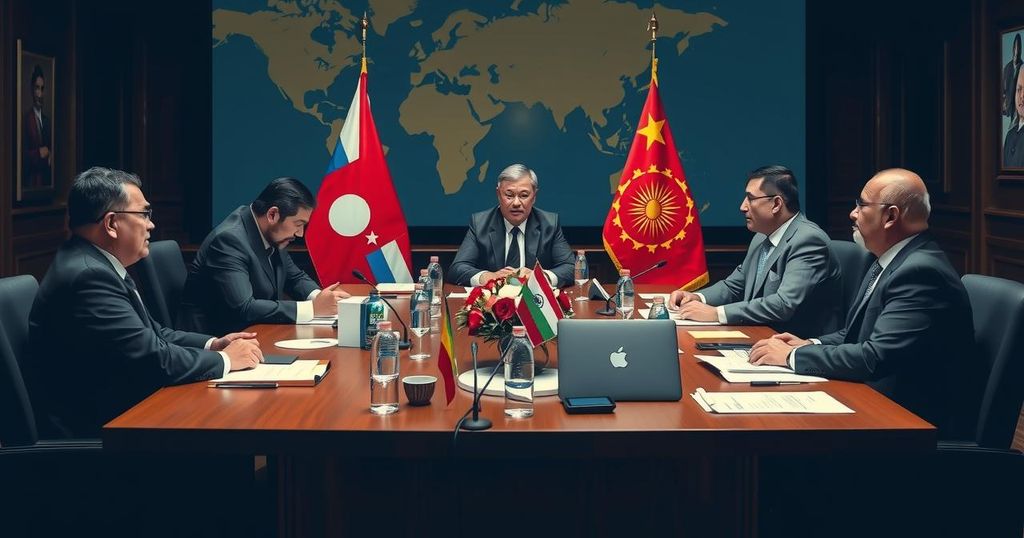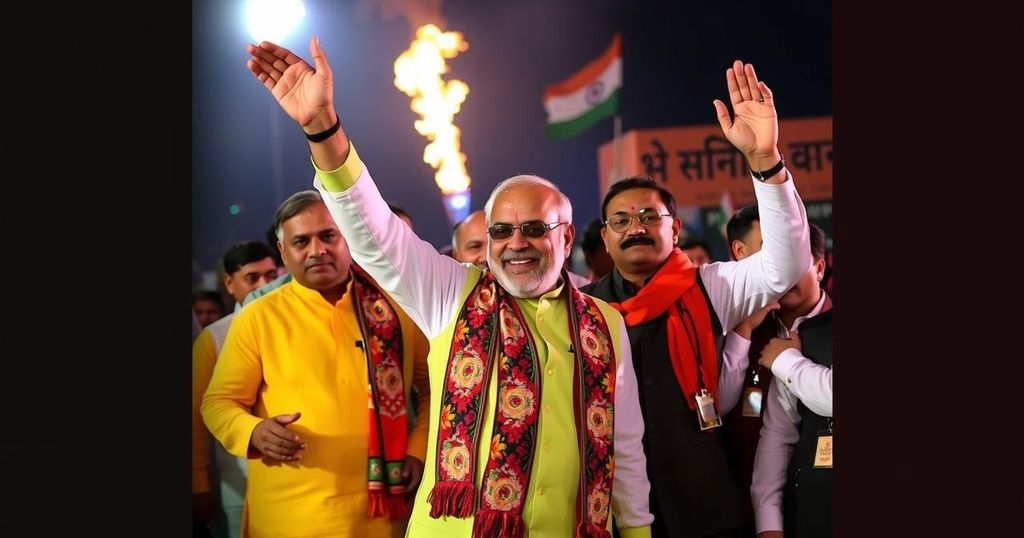Skepticism Surrounds BRICS as an Alternative to the Dollar
Former Goldman Sachs economist Jim O’Neill argues that the BRICS group cannot realistically challenge the US dollar unless China and India resolve their differences and cooperate on trade. The BRICS, which includes several major emerging economies, has achieved little collectively over the past fifteen years, and its effectiveness is hindered by the significant economic imbalances among its members. Additionally, O’Neill emphasizes the necessity of US and European involvement in addressing global issues and critiques the current structure and objectives of BRICS.
Mr. Jim O’Neill, a former chief economist at Goldman Sachs and the originator of the term BRIC, has expressed skepticism about the viability of the BRICS group as a serious contender to the US dollar. He argues that unless China and India can overcome their divisions and cooperate on trade, the idea of BRICS challenging the dollar remains fanciful. During recent BRICS discussions, Russian President Vladimir Putin utilized the opportunity to illustrate that Western efforts to isolate Russia amid the Ukraine conflict are failing, as Russia seeks to strengthen its ties with emerging Asian nations. Jim O’Neill noted that the BRICS group, which includes Brazil, Russia, India, China, and several other countries, has contributed little of significance to global economic discussions in the past 15 years. He described BRICS as a largely symbolic gathering where major emerging economies converge to assert their independence from US influence, pointing out that the group’s attempts to present itself as an alternative to established global economic systems lack feasibility. He emphasized that addressing global challenges cannot be done without the involvement of both the United States and Europe, just as the West cannot tackle global issues without the engagement of China, India, and other members of BRICS. The BRICS association evolved from informal discussions among Russia, India, and China and has since expanded to include additional countries such as Brazil and South Africa. Currently, this coalition represents 45% of the world’s population and 35% of its economy based on purchasing power parity, with China’s economic influence being overwhelmingly dominant. O’Neill also criticized BRICS’ endeavors to establish alternative payment systems to evade Western sanctions, suggesting that any currency developed by BRICS would rely heavily on China, leaving Russia and Brazil with minimal impact. He remarked, “If they wanted to be really serious about economic matters, why don’t they genuinely pursue less tariff-based trade between each other?” He indicated a desire for the more significant players, namely China and India, to engage in meaningful negotiations instead of perpetuating their confrontational relationship. Despite China’s overtures to Russia amidst a tumultuous international landscape, O’Neill reiterated that BRICS lacks focused objectives. He suggested that the group should tackle pressing global issues, such as public health and climate change, if it seeks to establish itself as a credible entity in the realm of international governance.
The BRICS formation emerged in the early 2000s through the collaboration of major emerging economies: Brazil, Russia, India, and China. The acronym BRICS further expanded to include South Africa and, more recently, Egypt, Ethiopia, Iran, and the United Arab Emirates, always with an eye on reshaping global governance. These nations represent a significant portion of the global population and economy but face challenges in establishing a unified front primarily due to differing national interests, particularly between China and India. The ongoing geopolitical tensions, trade disputes, and the push for alternative economic frameworks have led to discussions about the viability and future of BRICS in the context of global finance dominated by the US dollar.
In conclusion, the prospects of BRICS evolving into a formidable global economic force seem tenuous unless China and India address their recurring conflicts and embrace cooperative trade practices. Jim O’Neill’s critique underscores the necessity of significant participation from both Western and non-Western nations in combating global challenges, hinting at the limitations of BRICS as a counterweight to US economic dominance. Without clear objectives and committed collaboration, BRICS’s ambitions may remain unrealized.
Original Source: www.ndtv.com








Post Comment